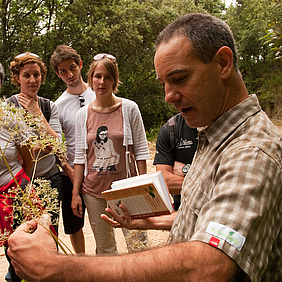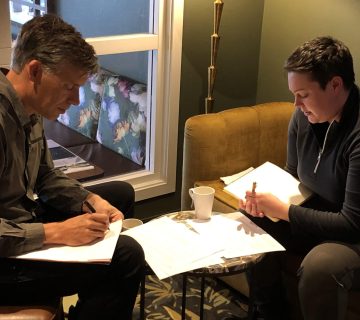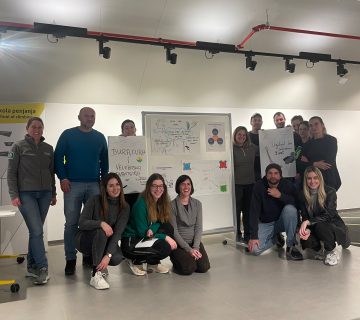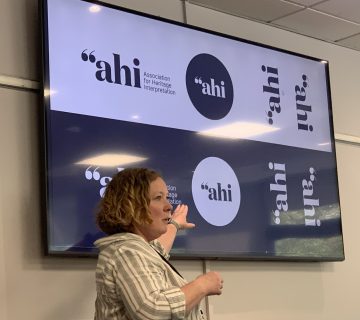Offering insight into natural and cultural heritage, through the use of the edible landscape in order to understand and appreciate the territory’s cultures and traditions over time.
Nature, landscape and the vegetation of each place, represent the territory and history. The intrinsic relationship between climate, soil and human interaction with its culture makes each place in the world unique.
Through thematic tours and using, for example, herbs and flowers, there is an infinite range of possibilities to understand and enjoy the natural and cultural heritage of each place.
By promoting the use of all the senses, and the edible resources of the landscape, we can achieve a different way of knowing the intangible heritage of a place in the most vivid way.
Direct experiences can be offered through aromas, tastes, … different sensations that nature offers us to approach the culture and its values. Activities, such as: the Ratafia (a herbal catalan liqueur), the Jewish Pantry or being part of the Sustainable Tourism Map, which are coordinated with other entities, such as the Ratafia Brotherhood, the Jewish Museum, or the Barcelona City, guarantee the quality of our work in this direction.
Supporting the popular culture of each place through the dissemination of the traditions and values of the people, their customs and culture related to the relationship with nature over time makes people more aware of the natural resources, so that we can learn to conserve and love our territory in order to guarantee its sustainability in the future.
For example, combining wine and flower tasting can be a very engaging way for people to learn about our culture through nature: learning about the elaboration of a traditional liqueur, such as ratafia, which is made with dozens of wild plants for ingredients, or a wine pairing with flowers to their territory. People can discover the Mediterranean diet trough a botanical walk.
People can also learn about the Jewish culture or Greek traditions with plants as the common denominator. Or even use the herbs and flowers of a place to make the most simple and traditional dishes to the most sophisticated and avant-garde cuisine where the thousands of options that nature offers us will deepen our understanding of our culture.
These are some examples of activities that connect people with nature and with the intangible heritage, but at the same time being unique to each place.
Evarist March Sarlat is an IE Certified Interpretive Guide Trainer (CIGT) and a nature guide for Naturalwalks, Catalonia (www.naturalwalks.com). He is a botanist specialising in the use of plants, wild mushrooms and algae and their uses in cuisine and for promoting health. You can contact him at: evarist@naturalwalks.com
To cite this article:
Sarlat, Evarist March (2017) ‘Learning culture through nature’. In Interpret Europe Newsletter 3-2017, 13.




